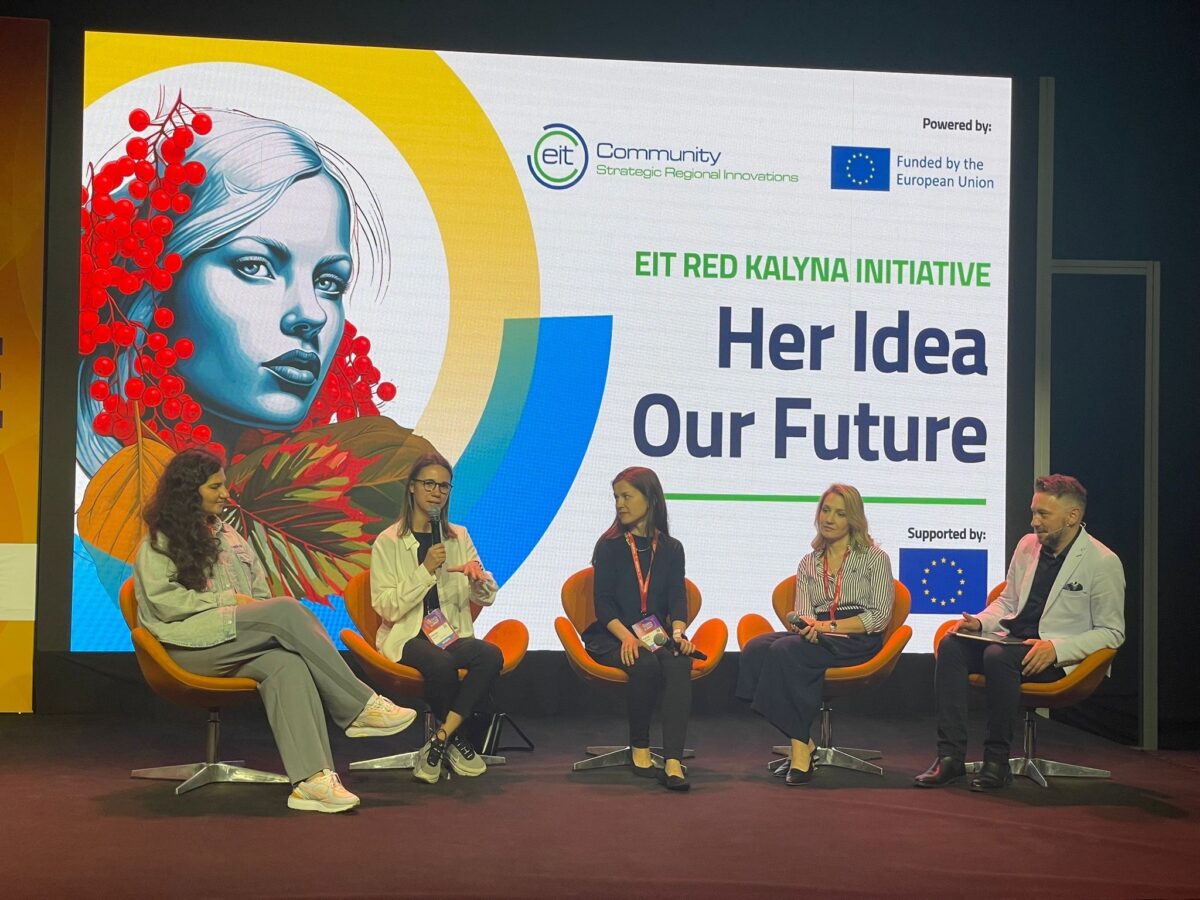In these challenging times for Ukrainian entrepreneurship, a new wave of female start-up founders is redefining success and innovation.
These dynamic women are not only breaking down barriers in a traditionally male-dominated industry but also inspiring a new generation with their tenacity, creativity, and vision.
Two of these inspiring women—Maria Alipatova and Iryna Savytska—participated in a recent panel discussion, Her idea. Our future. Female world of Ukrainian start-ups, I hosted at the Perspektywy Women in Tech Summit in Warsaw.
My main takeaway from this session was that while these women face challenges, they are transforming these challenges into opportunities.
“Since my childhood, I always wanted to become an inventor but until 2022, I thought that I would become an engineer in a global company,” said Maria Alipatova, a 24-year-old graduate in mechanical engineering, material science and management and one of the founders and CEO at Tova Industries.
“When the war started, I was in Spain doing my internship. And when it finished, it was quite dangerous to return [to Ukraine]. That is why I applied for the Erasmus programme for young entrepreneurs and moved to Sweden for a few months. And that is how I developed the idea of solar optics. I had a host entrepreneur who helped me to develop the solution. Then, I moved to Berlin where I did another acceleration programme which helped us build and validate our prototype. Then I joined the Jumpstarter Programme.”
Now, her company specialises in the development and production of energy-saving technologies for industrial sectors.
Business first
Iryna Savytska is the founder and CEO of Bank of Memories, a company dedicated to developing software aimed at preserving valuable information for future generations.
“I realised that I should not even tell people I am from Ukraine because it shifts their attention from my business and from investment perspectives,” she said.
“I just kept talking about my business first. And when they happened to ask me where I am from, I say I’m from Ukraine. I don’t want them to focus on the country because it’s not important. In the current environment, we are all global.”
“The war brought women into the forefront in the innovative ecosystem,” said Diana Berezhna, a project coordinator at the EIT Strategic Regional Innovation Cluster, specifically focused on the Red Kalyna initiative launched at the Tech Emerging Europe Advocates Meeting in Warsaw in 2023.
“It wasn’t an intentional shift, but by the end of 2023 we had more than 30 per cent of C-level positions being held by women. Over 50 per cent of sole entrepreneurs who set up a business in 2023 in Ukraine were women.”
Driving innovation
It appears that the war just highlighted this untapped potential of women innovators. It emphasised their capability to adapt in a time of crisis and they are now driving innovation and the economic recovery of Ukraine.
There are now female founders active in multiple sectors, from military tech, to biotechnology, through education. And the role of women role appears to have changed.
“Women now are those who can come to Europe and spread the idea of a start-up, of a project, and I know a lot of teams who are now employing women because they are able to travel and to present projects on the international arena. Women are in high demand as employees right now,” Alipatova added.
“We need to familiarise [venture capital funds] with our bright examples, our role models, and they will see the real benefit, realise that they can’t lose this opportunity,” added Savytska.
At the end of the day, they exist to bring return on the investment and might not be investing in the right start-ups. Are they then acting to the benefit of their stakeholders?
You can watch the full discussion below.







